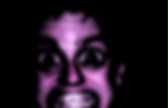

Writersroom - Homepage. Writersroom - Writing TV Situation Comedy. British Comedy Guide - Comedy Writing - Sitcom: Why Audiences Laugh. In this article Mike Corke analyses what it is, in situation comedy, that makes audiences laugh. He uses many examples, particularly drawn from the classic Fawlty Towers series (but including several other popular shows) to describe the numerous comic devices used by sitcom writers... The Laughing Audience Water Colour by E M Ward (after an engraving by William Hogarth 1733) What should become clear is that what we are not laughing at are 'jokes' in the way we normally recognise and understand them. Jokes, in themselves, can often be very funny, but situation comedy is not just a succession of humorous tales, spoken by the characters.
In fact, jokes don't make very good material for situation comedy at all. A joke lasting one to two minutes comprises of a lead up and a punch line. The lead up is usually listened to in silence and the punch line triggers the laughter. For successful situation comedy the laughter frequency needs to be much higher, at between three or four per minute.
Graham Linehan on sitcom audience laughter | Media. People sometimes ask me why I like to film sitcoms in front of a studio audience. Well, they don't, really. One guy did, a few years ago. But it stands out in my mind because the subtext was easy to pick up in the tone of his voice, and the fact that he put the words "on earth" after the word "why". Studio sitcoms like my current one, The IT Crowd, tend to be expensive and extremely unfashionable with critics, who regularly complain about being "told where to laugh" by the audience's response (as if that was something that ruined their enjoyment of, say, Monty Python or Dad's Army). So why on earth do I film sitcoms in front of a studio audience? There are some actors who come alive in front of a crowd, and if you've cast it right, there's an energy between cast and audience that can be exhilarating for both parties, then enjoyed by the audience at home.
Audience laughter, when it's deserved, acts as a sort of fairy dust that makes funny moments not just funny, but joyous.